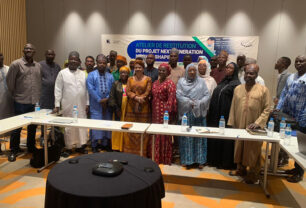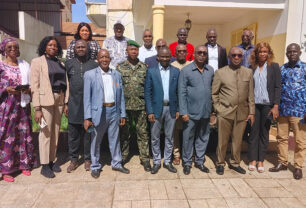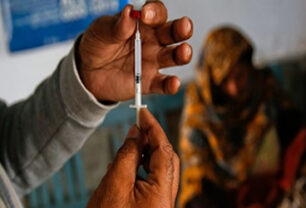
This kick-off meeting was attended by the consortium members of the project, which is being coordinated by Penn State University and funded by the Defense Threat Reduction Agency (DTRA) of the United States Department of Defense – Health. The opportunities and challenges associated with this multinational One Health project were discussed by members of the consortium, which is made up of regional and international human, animal, and environmental health organizations:
- Senegalese Institute of Agricultural Research – National Laboratory for Livestock and Veterinary Research, Dakar, Senegal (ISRA-LNERV)
- Institut Pasteur in Dakar, Senegal (IPD)
- Muraz Center, Ministry of Health, Bobo-Dioulasso, Burkina Faso (CM)
- Charles Mérieux Center for Infectious Disease, Bamako, Mali (CICM)
- Central Veterinary Laboratory, Bamako, Mali (CVL)
- West Africa Livestock Innovation Center, Banjul, Gambia (WALIC)
- US Army Medical Research Institute of Infectious Diseases, Fort Detrick, MD, USA (USAMRIID)
- Mérieux Foundation USA, Washington, DC, USA
- Pennsylvania State University, University Park, PA, USA (PSU)
The new five-year project offers an integrated approach, as part of the One Health initiative, to assessing the risk of viral hemorrhagic fevers developing in West Africa, in particular Lassa fever, Ebola, Crimean-Congo hemorrhagic fever and Rift Valley fever. The objective of this international collaboration is to define prevalence and risk through the targeted surveillance of high-risk zones identified in the region. To this end, the consortium proposes to continue to shift the paradigm in advance prevention and surveillance to:
- Identify and improve the characterization of pathogenic agents with a known epidemic potential and an unknown pandemic potential;
- Recognize animal reservoirs and amplification hosts for infectious diseases in humans;
- Determine the risks of exposure to enable the effective targeting of intervention measures on human behavior that amplifies the transmission of diseases




